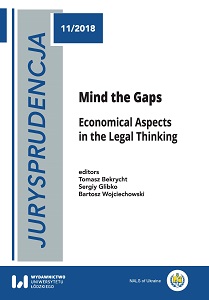
We kindly inform you that, as long as the subject affiliation of our 300.000+ articles is in progress, you might get unsufficient or no results on your third level or second level search. In this case, please broaden your search criteria.






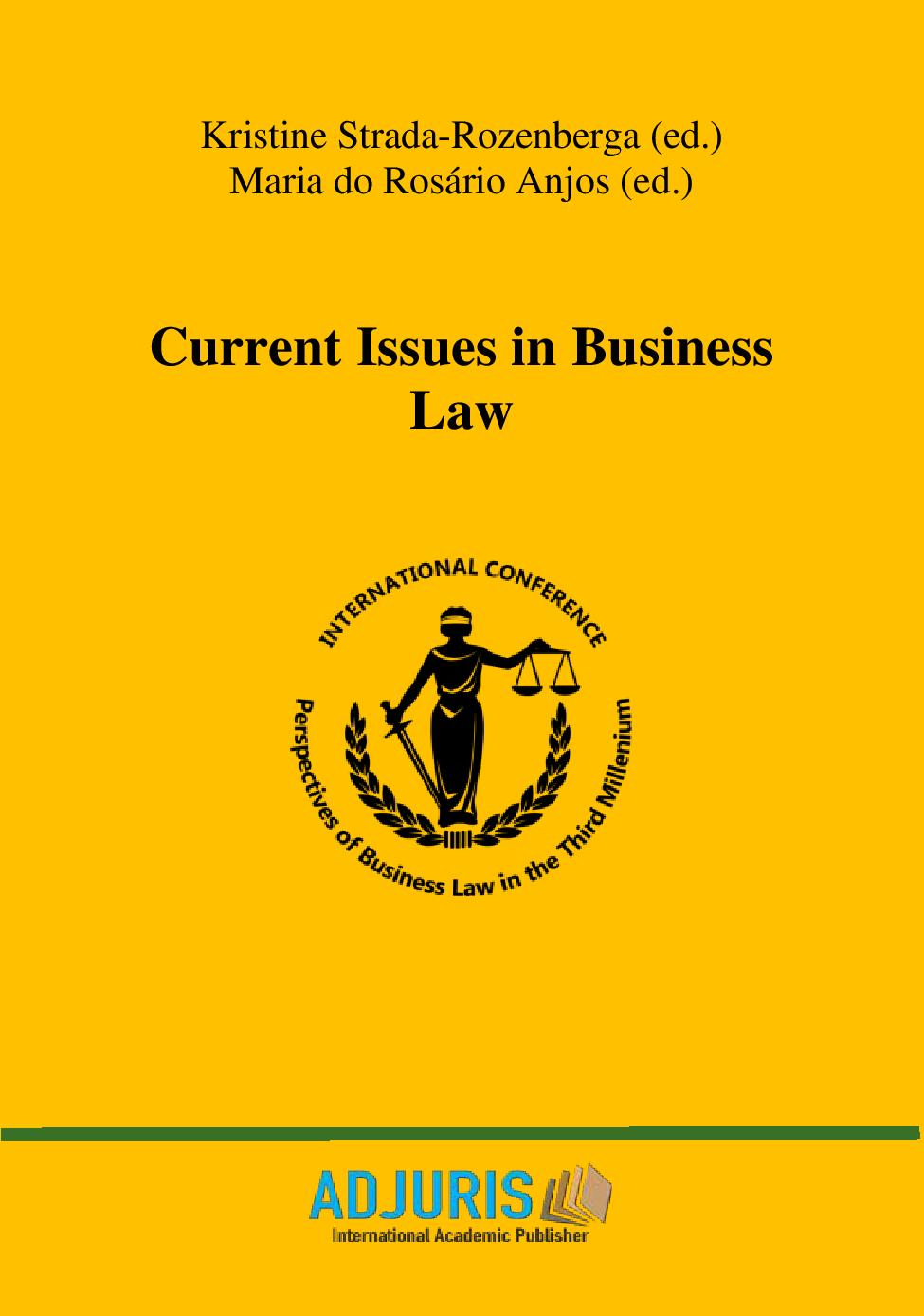
The use of the natural resources of the environment for the purpose of economic development, ignoring the maintenance of ecological equilibrium and triggering irreversible negative environmental phenomena, has generated, at the level of theory and also at the level of environmental policies, disputes, concerns and initiatives. Outlining the idea of economic development in close connection with that of sustainable development of the environment was aimed at identifying solutions and setting objectives to solve the complex problems that concern the quality of life and the environment. Starting from the concept of sustainable development of the economy, we try to prove that the exploitation of resources and the quality of the environment implies a gradual process imposed by the existing realities, but also by the objectives of the strategies or policies of environmental protection at national and external level. In this paper we will show that the new orientation of the economy, namely towards a sustainable development, requires the realization of a process of economic growth that must take place in the conditions of ensuring the social welfare of the population, but which must be correlated with ensuring the preservation of the environment and of its natural resources. The basic idea that must be retained is that the environmental protection is not only necessary but is also extremely important, such as is, as well, the economic growth, as it must be seen as a way of supporting human development which, from a sustainable standpoint, has at the center of its priorities, the human being. The present study attempts to demonstrate that the solving of economic problems involves taking into account ecological problems that can generate negative consequences for the quality of human life and of the environment, so that any economic decisions must be made in accordance with the ecological aspects.
More...
The concept of performance, in principle, implies a subjective assessment of the quality of work and the extent to which the "winning behaviors” are manifested by use of knowledge, skills and abilities by the employee in the process of work. In this context, it seems surprising to find within the amendment in 2011 of the collective dismissal procedure stipulated by the Labor Code some stages and concepts linked to performance within the work frame of the dismissal regulated by art. 65 et seq of the Labor Code. Although, essentially, is a type of objective dismissal based on the removal of the employee's working place for one or more reasons unrelated to his or her person, the redundancy may be influenced during the collective dismissal process by subjective elements associated to performance concept. Such subjective elements are present both at the stage the assessment of goals achievement and at the stage of applying the criteria for prioritizing the dismissals by application of performance criteria or traditional social criteria. The hybrid nature of the selection criteria within the collective dismissal procedure is also highlighted by the recent legal practice, which begins to reveal the increase of the consciousness of legal science over that of human resources management and leads to the development of a new, complex and interesting judicial practice. This article aims to initiate a broader study of the interference of these two domains, surprising the impact of performance in targeted redundancies regulated by labor law.
More...
The Law no. 81/2018 of teleworking refers to specific professions such as brokers, sales agents, employees involved in social media activity, analysts, programmers, accountants, financial and tax consultants, translators, etc. Teleworking is the form of work organization in which an activity that may be performed within the workplace organized by the employer is carried out by an employee, from a distance from this location, on a regular and voluntary basis, at least one day per month, using information and communications technology, based on an individual employment contract or an additional act. Prior this Law, the legal possibility an employee could work somewhere else than employer’s place, were by working at home, detachment or delegation agreement, or by signing a mobility clause. Teleworking regulation is in line with European legislation, responding to labor market needs and demands, but the application of teleworking legislation will raise problems, especially regarding the activities in the norms of safety and health at work and in terms of highlighting the hours provided by teleworkers and the controls performed by the representatives of the competent authorities.
More...
The present study aims to analyze how good faith is reflected in the exercise of legal employment or, where appropriate, service relationships, of staff within public authorities and institutions. We have in mind all the categories of such persons, which are mentioned in the legislation and not only by the phrase "budgetary personnel", in which we also include contractual staff, civil servants and dignitaries. In all cases, it is necessary to regain good faith but, in particular, it is revealed to the holders of public functions and dignities. This follows expressly from the wording of Article 54 of the Constitution, which obliges the citizens entrusted with public functions, as well as the military, to fulfill their obligations in faith, in which purpose they take the oath prescribed by law.
More...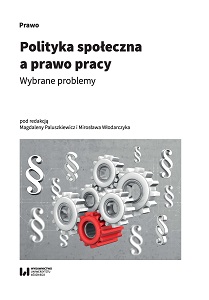
Legislation regarding a social enterprise in Poland aims to accept its functional meaning. In this context, the non-economic circumstances of the emergence of social enterprises as well as the affirmative and inclusive nature of employment in social enterprises are important. Certainly, formalizing the character of a social enterprise will help in better allocation of funds for social and professional integration and reintegration. The development of social cooperatives proves that the needs in the field of social and professional integration and reintegration are very large.
More...
The right to work is a notion that has evolved over the years. In the light of international standards, one of the elements of the right to work is properly organised and generally available job placement services. Such interpretation of the right to work is particularly visible in the light of the European Social Charter. The Act on Employment Promotion and Labour Market Institutions that currently regulates issues related to job placement services does not contain a typical normative definition of this term, but provides a description of how it should be understood. The paper analyses Polish job placement regulations in terms of the degree to which they guarantee the right to work as defined in international standards.
More...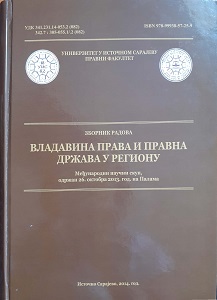
In his paper the author offers an in-depth analysis of status and legal nature of business association as distinct legal organizational form as defined by the law of Republic of Serbia. It highlights the fact that this pertains to business entity only in its wider sense.Business Association is an independent organization with legal personality, which is established by articles of association by at least two business entities operating under mutual name with the purpose of accomplishing mutual interests of its members, with liabilities to third parties guaranteed by its total assets, while its members are liable in the manner determined by the articles of association. It must be noted that business association in our legal system is not by its legal nature legal form for business activities with goal of making profit, moreover its not business entity, regardless of the fact that is regulated by the Company Law, that it is founded by other business entities, that it is entered into Business Register, that it has business name (company) and not the name under which it operates etc. The author in this paper considers the similarities and differences between business association and European group of economic interests, respectively business chamber.
More...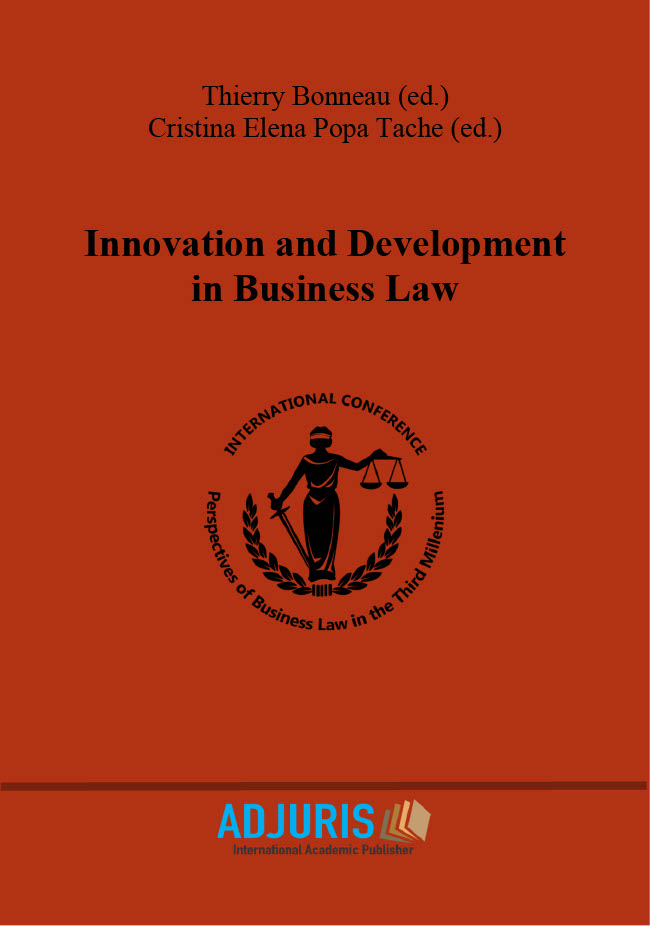
The current legal framework regarding individual employment relations is generally based on the proliferation of non-standard forms of employment, which meet the need for flexibility in the labor market. The economic and financial crisis has resulted in a significant increase in number of workers looking for alternative forms of employment. Similarly, as companies face an unpredictable business environment, they began to rely more on innovative forms of employment. Actually, by using more flexible workforce the companies have better adjusted to the demands of today`s marketplaces. Although there are many new employment forms which are emerging across EU, the concept of crowd employment has an important potential for development in the context of opportunities offered by the new technologies. In Romania, it is still relatively little known, whereas in the companies operating on the European market it is a common solution to the problems generated by the need for flexibility. The present paper emphasizes the particular features of the crowd employment as an innovative form of employment with an explosive growth in the current context. Based on a comparative law analysis conducted in order to reveal various perspectives of the European Union’s Member States, this paper highlights the degree of utility-precariousness of crowd employment, in the event of its implementation into Romanian labour practice.
More...
Working time has maximum limits strictly regulated at national and European level. Periods that do not constitute working time are considered rest time. Among the periods that do not make up working time, in this paper we will explain the concept of “leave days” (days off), not legally defined and even slightly obscure in the current Romanian legislative landscape. The notion of leave days does not benefit from a rigorously outlined legal definition. So, we shall attempt some clarifications. Besides, the paper includes an analysis of recent developments in Romanian Labour Law on working time, in the period of COVID 19 crisis. The heterogeneous nature of the situations considered and their disparate regulation makes it difficult to outline a single legal regime for leave days; from justification to effects, they cover a wide range of legal realities. That is why, how- ever, we deemed useful a synthesis of the situations where this concept is regulated in Romanian law, as well as the legal consequences of these rules on the parties to the individual employment contract.
More...
The salary, established by individual negotiation, can be modified, as a rule, only by the agreement of the contracting parties – in compliance with the provisions of art. 38 of the Labour Code. However, in the field of individual labour relations, the incidental legal regulations also provide for some hypotheses of unilateral reduction of the contractual element seen in the above. For example, the modification of the collective labour contract – in the private sector – through the adopted laws, determines the modification of the individual labour contract (because art. 132 paragraph 4 of Law no. 62/2011 of the social dialogue specifies: “the individual labour contract may not contain clauses establishing rights at lower levels than those established by the applicable collective bargaining agreements”).
More...
The legal rules on collective redundancies abound in matters of interpretation and application; the most thorny of the questions arising from this process is related to the integration of the performance goals appraisal and general professional competence appraisal in a legal context that the legislator wanted to be eminently objective. Beyond the substantive aspects of this complex process, all stages of information, consultation, regulation and implementation of aspects related to the selection of employees in scope of collective redundancy must be clearly and accurately recorded in the documents issued in collective redundancy processes. Their non-compliance entails the risk of the court annulling the dismissal decision, affecting the effectiveness of a long, complex and trau- matic process for the individuals and the organization. We further aim to capture some of the best practices regarding the steps taken for the smooth implementation of a collec- tive redundancy process, with a special focus on issues related to the professional evaluation of employees.
More...
The article aims to analyze the specific sources of precariousness: Undeclared work, False-independent activities, Atypical employment contracts, "Very atypical" employment contracts, Standard employment contract. The concept of precarious work could not be given an overview without referring to atypical working relationships, which implicitly have a precarious component. In this sense, for the analysis of the precarious elements within the atypical work reports, it is important to define this concept, starting from the definition of the standard/typical work relationship. These economic, political and social influences, which encompassed society, led to the emergence of atypical forms of work, as a consequence of labor market flexibility. Here that, in such an unstable and variable economic environment, the deviation from the standard employment contract appears to be imminent. Consequently, we intend to further analyze, starting from the definition of standard work, atypical employment contracts, as well as other non-standard activities (undeclared work and false self-employment), as activities that underlie the phenomenon of precarious work.
More...
The legal termination of the individual employment contract represents the termination of the individual employment contract for reasons not related to the will of the employer or the employee. In the judicial practice, as well as in the specialized literature, it was appreciated that a distinction must be made between dismissal and the reasons for the legal termination of the individual employment contract. At the same time, it was appreciated in the specialized doctrine the fact that in case of legal termination of the employment contract, the employer would not have to comply with additional obligations than the issuance of a notification to the employee to inform him that his legal relationship has ceased for work. The Romanian legislator provided for the need to go through a preliminary procedure in case of legal termination of the individual employment contract as a result of admitting the request for reinstatement in the position held by the employee of a person fired illegally or for unfounded reasons. The preliminary procedure presupposes that prior to the notification of the employee regarding the legal termination of the individual employment contract, he proposes to the employee other vacancies in the unit, compatible with the professional training or, as the case may be, with the work capacity established by the occupational doctor. Romanian legislation on labor law is regulated in the sense of preventing and sanctioning any violation of the employer's legal obligations. Thus, in the situation of illegal dismissals, the sanction provided by the legislator is the absolute nullity with the possibility of reinstating in the situation prior to the issuance of the dismissal decision. During this work we intend to analyze whether the legal provisions on sanctioning illegal dismissals can be applied by analogy and in case of non-compliance with the employer's obligation to complete the prior procedure in case of termination provided by Article 56 paragraph 1 letter e) of the Labor Code. The present paper has a theoretical and practical importance because the specialized doctrine has not analyzed this hypothesis, and at the level of the courts a unanimous judicial practice has not been established.
More...
The present study aims to identify the legislative changes caused by the Covid-19 pandemic and to analyze the consequences of these changes on the employment relationships of young people and the elderly. During the pandemic, a flexibility of labor relations at national level and the need to regulate exceptions regarding the modification of individual employment contracts can be observed. Support measures have also been adopted for vulnerable groups of workers, young and old, respectively. Telework during the Covid-19 pandemic and beyond may encourage the exit from the labor market of older workers whose digital skills are lower than those of other categories of workers. To avoid this effect, it is necessary for employers to take measures to train the digital skills of employees, especially of older workers, having in mind the demographic aging of the population, which is also visible on the labor market.
More...